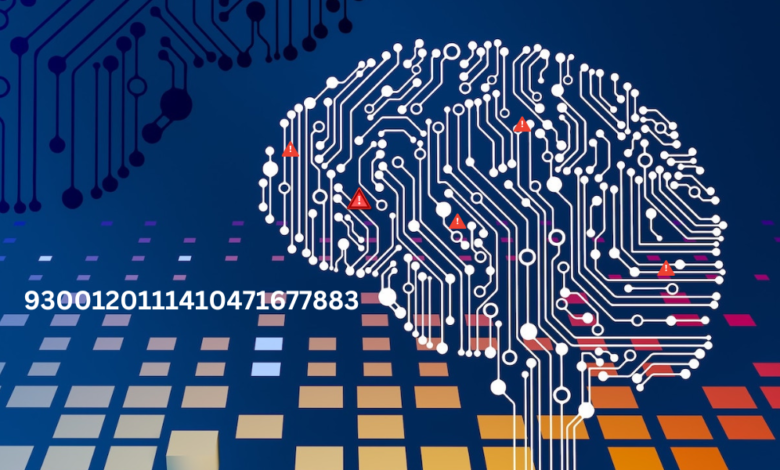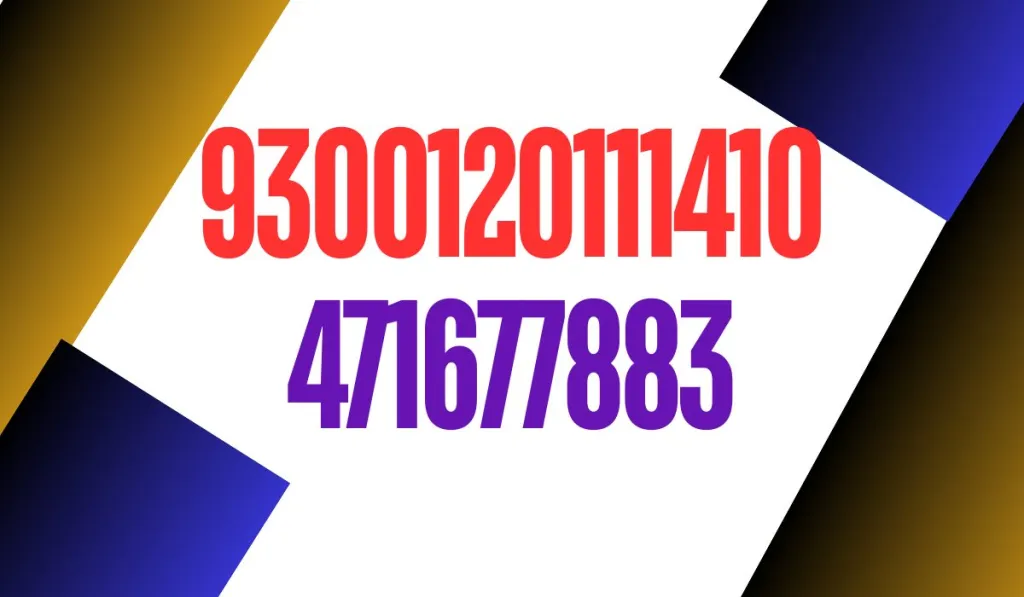In today’s digital world, codes, numbers, and unique identifiers are everywhere. Whether for security, authentication, or tracking purposes, these sequences of numbers play a crucial role. One such number is 9300120111410471677883, a unique identifier that can be utilized in various contexts. This article delves deep into the specifics of 9300120111410471677883, helping you understand its meaning, applications, and significance in today’s data-driven environment.
Meta Description:
Explore the significance of 9300120111410471677883, a unique identifier used in various fields for tracking, security, and data management. Learn its applications and frequently asked questions.
What is 9300120111410471677883?
9300120111410471677883 is a long string of numbers that can serve as a unique identifier in many systems, applications, or technologies. Identifiers like this are essential in distinguishing between individual entities, whether they are transactions, data records, or user accounts. Though 9300120111410471677883 might seem like a random assortment of digits, identifiers of this nature are systematically generated using specific algorithms or assignment rules, making them unique within their system of use.
Identifiers like 9300120111410471677883 are widely used in various industries such as:
- Banking and Finance: For transaction tracking or account identification.
- Technology and Software: For generating unique keys or authentication tokens.
- E-commerce: To track orders, customer accounts, and more.
- Telecommunications: For identifying devices or user accounts.
Why is 9300120111410471677883 Important?

In an increasingly interconnected world, unique identifiers like 9300120111410471677883 help organize, manage, and secure data. Here are some of the reasons why these identifiers are important:
- Security: Identifiers like 9300120111410471677883 are often used to secure transactions or access to sensitive information. By ensuring that each transaction or entity has a unique code, systems can reduce the risk of fraud or unauthorized access.
- Data Management: In databases, unique identifiers are essential to distinguish between various entries, records, or users. 9300120111410471677883 might be used to manage information efficiently, ensuring there’s no overlap or confusion.
- Tracking: Whether in supply chains, e-commerce, or digital platforms, unique identifiers help track items, transactions, or interactions throughout their lifecycle.
- Authentication and Authorization: Identifiers like 9300120111410471677883 are often used in login systems or applications that require user verification. By assigning a unique number to each user or session, systems can securely validate identity and access rights.
How is 9300120111410471677883 Generated?
Unique identifiers like 9300120111410471677883 can be generated using various methods, depending on their intended application:
- Random Generation: Some systems use algorithms to generate random sequences of numbers. These algorithms ensure that the sequence is unique, even if the number is randomly generated.
- Algorithmic Generation: Some unique identifiers are created using specific formulas or algorithms that take into account factors like time, location, or other variables. These identifiers are deterministic, meaning the same input will always result in the same identifier.
- Sequential Generation: In systems where each new identifier needs to be unique, numbers like 9300120111410471677883 might be generated in sequence, ensuring that no two entities or transactions share the same number.
- Hash Functions: For secure systems, identifiers may be generated using cryptographic hash functions that take input data and create a unique hash (or number) like 9300120111410471677883.
Applications of 9300120111410471677883
The applications of identifiers like 9300120111410471677883 are vast and varied. Here are some common examples of where this type of identifier might be used:
- Online Transactions: In e-commerce or online banking, unique identifiers are crucial for tracking transactions. A number like 9300120111410471677883 might be assigned to a particular payment or order to distinguish it from others.
- User Identification: Platforms such as social media, online services, or cloud applications often assign unique identifiers to users. This helps the system manage user accounts, permissions, and interactions efficiently.
- Inventory Management: In retail or manufacturing, every product might be assigned a unique identifier like 9300120111410471677883 to ensure accurate tracking through production, storage, and sale.
- Telecommunications: Mobile devices, SIM cards, and other telecommunication services often rely on unique identifiers to manage subscriptions, call data, and user activity.
How to Use or Verify 9300120111410471677883
When dealing with a unique identifier like 9300120111410471677883, it is crucial to ensure that it is valid and used correctly. Here are steps to verify or utilize such an identifier:
- Input Validation: Ensure that the identifier is entered correctly in any system requiring it. Mismatches can lead to errors or issues in tracking or accessing the correct information.
- Authentication Systems: If 9300120111410471677883 is used for login or verification purposes, make sure the correct user credentials are associated with it to avoid access issues.
- Tracking Systems: In supply chain or order tracking, use the identifier to monitor the progress or status of an item.
- Security Audits: If 9300120111410471677883 is part of a security system, regular audits should be conducted to ensure its integrity and uniqueness remain intact.

Conclusion
Unique identifiers like 9300120111410471677883 are the backbone of many systems, ensuring the smooth operation of processes in industries ranging from e-commerce to finance and telecommunications. Understanding how such numbers work, their significance, and how to use them can improve efficiency, security, and data management. Whether you’re working in tech, business, or simply managing personal accounts, grasping the concept of unique identifiers is essential in today’s digital landscape.
FAQs About 9300120111410471677883
1. What is the significance of the number 9300120111410471677883?
The number 9300120111410471677883 is a unique identifier that can be used in various systems to distinguish between different entities, transactions, or records. It helps ensure security, proper tracking, and efficient data management.
2. Where is the identifier 9300120111410471677883 used?
It can be used in several industries including online transactions, e-commerce, banking, telecommunications, and inventory management to uniquely identify products, users, or transactions.
3. How is 9300120111410471677883 generated?
Unique identifiers like 9300120111410471677883 can be generated using algorithms, hash functions, random number generators, or sequential generation methods, ensuring uniqueness and security.
4. Can 9300120111410471677883 be reused?
No, identifiers like 9300120111410471677883 are designed to be unique and are typically not reused within the same system. Reusing identifiers could lead to confusion or security risks.
5. Is 9300120111410471677883 safe to use?
Yes, unique identifiers like 9300120111410471677883 are widely used for secure data management and tracking. However, as with any digital system, ensuring the correct handling and storage of identifiers is crucial for maintaining security.
Unique identifiers such as 9300120111410471677883 are a key part of modern data-driven systems, facilitating everything from secure transactions to accurate inventory tracking.



